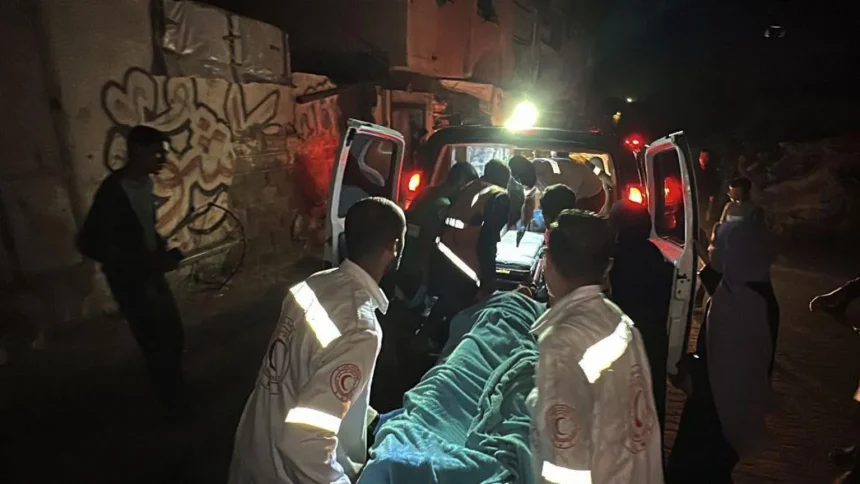International pressure is mounting on both Israel and Hamas to restore calm after a series of deadly airstrikes in Gaza left 33 Palestinians dead, raising fears that the fragile ceasefire agreement could completely collapse.
The United Nations (UN), along with key mediators Egypt and Qatar, have issued urgent calls for restraint and renewed diplomatic dialogue to prevent a return to full-scale war.
UN Appeals for Immediate Restraint
UN Secretary-General António Guterres condemned the recent escalation, saying that continued violence threatens the entire Middle East region.
“The recent loss of civilian life is tragic and must stop immediately,” Guterres said in a statement. “Both Israel and Hamas must return to dialogue and uphold the ceasefire commitments.”
The UN is also warning of an impending humanitarian disaster in Gaza, where hospitals are running out of fuel and essential medicines due to border restrictions and infrastructure damage caused by the airstrikes.
UN humanitarian agencies estimate that more than 1.8 million Gazans are currently in need of urgent food, water, and medical assistance.
Egypt Steps In to Restore Dialogue
Egypt, which has played a key role in mediating past ceasefire agreements between Israel and Hamas, has launched a new round of indirect negotiations through intelligence and diplomatic channels.
According to Cairo-based sources, Egyptian mediators have reached out to both sides, urging them to “exercise restraint and prevent the situation from spiraling out of control.”
“Egypt is working tirelessly to ensure that the ceasefire is respected by both parties,” an Egyptian official said. “The region cannot afford another full-blown war.”
Analysts say Egypt’s influence remains crucial, given its geographical proximity to Gaza and long-standing ties with both Israel and Palestinian factions.
Qatar Joins Diplomatic Efforts
Qatar, another key mediator, has also joined calls for calm. The Gulf nation’s Foreign Ministry expressed “deep concern” over the escalating violence and reaffirmed its commitment to peace efforts.
“Qatar calls on all parties to de-escalate and abide by the ceasefire terms,” the ministry said in a statement. “The targeting of civilians cannot be justified under any circumstances.”
Qatar has previously provided humanitarian funding and reconstruction aid to Gaza, and its involvement is seen as essential in sustaining both diplomatic and humanitarian relief operations.
Trump’s Remarks Spark Controversy
Amid the growing tension, former U.S. President Donald Trump insisted that the ceasefire remains intact, describing the situation as “under control.”
His remarks have drawn mixed reactions, with critics accusing him of underestimating the scale of the crisis. Human rights organizations argue that the ceasefire is effectively broken, citing ongoing airstrikes and cross-border attacks.
“Saying the ceasefire is holding while people are dying sends the wrong message,” said Amnesty International’s Middle East division. “What we’re witnessing is the collapse of restraint.”
Humanitarian Situation Worsens
In Gaza, hospitals are struggling to cope with the influx of casualties. Local health officials say medical facilities are running low on essential supplies, and power shortages have further complicated rescue operations.
According to the World Health Organization (WHO), several hospitals have stopped performing surgeries due to the lack of fuel for generators.
Families displaced by airstrikes are now seeking refuge in UNRWA schools and shelters, which are already overcrowded and underfunded.
“The humanitarian needs in Gaza are catastrophic,” said UNRWA spokesperson Tamara Alrifai. “Children are dying, families are starving, and hospitals are collapsing. The world must act.”
Regional Reactions
The latest violence has triggered widespread condemnation across the Middle East and beyond.
Turkey called for an emergency meeting of the Organisation of Islamic Cooperation (OIC) to discuss the crisis.
Saudi Arabia urged the international community to take “firm steps” to ensure that Israel halts military operations.
Jordan warned that the continuation of hostilities would “destroy any prospects for peace in the region.”
African nations, including Kenya and South Africa, have also echoed the UN’s call for peace. Kenyan civil society groups urged global powers to prioritize diplomacy over military intervention.
Experts Warn of Escalation
Political analysts say that while mediators are working to salvage the ceasefire, trust between Israel and Hamas is at its lowest point in years.
“The ceasefire is hanging by a thread,” said Middle East analyst Dr. Leila Khoury. “Without accountability and genuine commitment from both sides, the conflict could reignite within days.”
The European Union (EU) and African Union (AU) are also expected to release a joint statement urging renewed peace efforts.
Global Calls for Peace
As the death toll climbs, international pressure is mounting for a lasting solution. Humanitarian groups have demanded safe corridors for medical evacuations and immediate delivery of aid to Gaza.
“Every hour without action means more lives lost,” said UNICEF Executive Director Catherine Russell. “The children of Gaza cannot wait.”
Diplomats in New York and Geneva are reportedly drafting new UN Security Council resolutions aimed at reinforcing the ceasefire and holding violators accountable.










